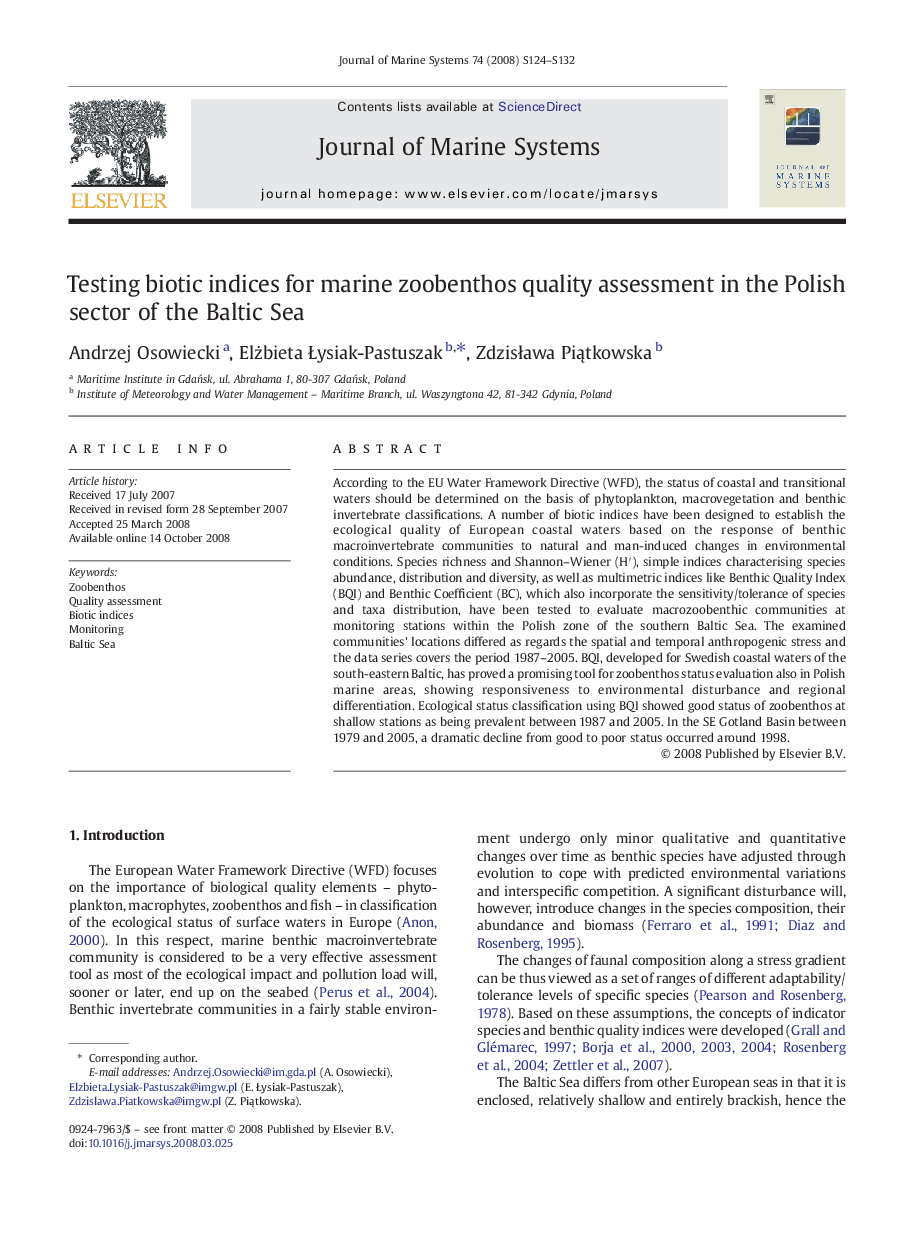| Article ID | Journal | Published Year | Pages | File Type |
|---|---|---|---|---|
| 4549120 | Journal of Marine Systems | 2008 | 9 Pages |
Abstract
According to the EU Water Framework Directive (WFD), the status of coastal and transitional waters should be determined on the basis of phytoplankton, macrovegetation and benthic invertebrate classifications. A number of biotic indices have been designed to establish the ecological quality of European coastal waters based on the response of benthic macroinvertebrate communities to natural and man-induced changes in environmental conditions. Species richness and Shannon-Wiener (Hâ²), simple indices characterising species abundance, distribution and diversity, as well as multimetric indices like Benthic Quality Index (BQI) and Benthic Coefficient (BC), which also incorporate the sensitivity/tolerance of species and taxa distribution, have been tested to evaluate macrozoobenthic communities at monitoring stations within the Polish zone of the southern Baltic Sea. The examined communities' locations differed as regards the spatial and temporal anthropogenic stress and the data series covers the period 1987-2005. BQI, developed for Swedish coastal waters of the south-eastern Baltic, has proved a promising tool for zoobenthos status evaluation also in Polish marine areas, showing responsiveness to environmental disturbance and regional differentiation. Ecological status classification using BQI showed good status of zoobenthos at shallow stations as being prevalent between 1987 and 2005. In the SE Gotland Basin between 1979 and 2005, a dramatic decline from good to poor status occurred around 1998.
Related Topics
Physical Sciences and Engineering
Earth and Planetary Sciences
Oceanography
Authors
Andrzej Osowiecki, Elżbieta Åysiak-Pastuszak, ZdzisÅawa PiÄ
tkowska,
